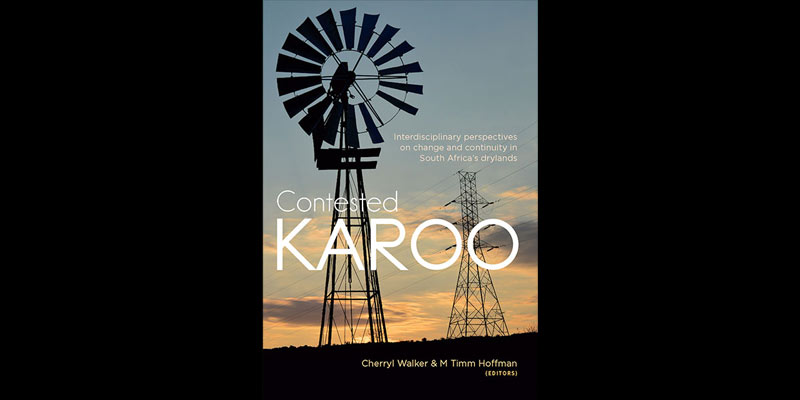New Interdisciplinary book sheds light on the history and future of a contested landscape
Posted on Tuesday 25 June 2024

South Africa’s semi-arid Karoo region is home to unique biodiversity, and has a complex history of land management. It also faces a highly uncertain future; sparsely populated by marginalised communities, it has long been home to pastoralism and increasingly to biodiversity conservation, but has recently been re-imagined as a “resource frontier”. The new book “Contested Karoo: Interdisciplinary perspectives on change and continuity in South Africa’s drylands” brings social, environmental, historical and political-economic approaches into a single frame.
In crafting the book, editors Cherryl Walker and Timm Hoffman aimed to enable a more nuanced understanding of who has stakes in the Karoo and its future, how those futures are imagined. Their new interdisciplinary collection brings together research from a diversity of young and established scholars in the social and the natural sciences and explores land-use changes in the Karoo region, and the implications for different sectors. It examines tensions and contestations that result from the reconfiguration of the Karoo as a new ‘resource frontier’. In bringing the collection together, the editors grappled with the complexity of combining multiple perspectives across disciplines and scales. “Negotiating these differences requires mutual respect and openness to other perspectives. We have experienced this engagement as intellectually very enriching and productive of new insights and further research questions.”
The competing or synergistic interactions between biodiversity conservation, resource extraction, energy production and the need for social upliftment and justice has created both tensions and opportunities in the Karoo. Land use and authority in this vast and long-marginalised area are being reshaped by multiple interests including mining, astronomy (notably the Square Kilometre Array radio telescope), biodiversity conservation, commercial game farming, and energy, both renewable (solar, wind) and non-renewable (shale-gas mining). While these developments promise potential benefits to society, they are built on histories of dispossession and extractivism, which many Karoo residents fear are being reproduced in new forms today.
“This collection raises conceptual and policy questions that resonate far beyond the Karoo itself, highlighting the importance of interdisciplinary collaboration in research aimed not only at understanding but also at responding appropriately to the mounting challenges of our time”, say the editors. “The book places this unique region at the centre of national and global concerns around climate change, the politics of knowledge production, the conservation of threatened biodiversity, and the meaning and possibility of sustainable development.”
UCT Press is grateful to the National Research Foundation and the UCT Open Access Fund for the funding that makes free dissemination possible.
